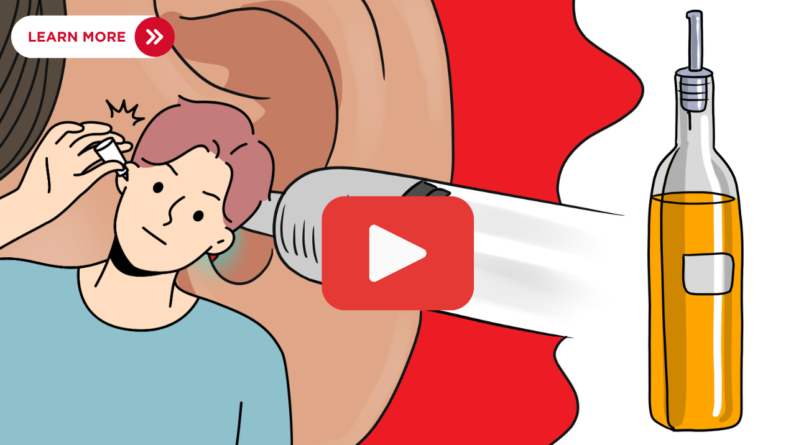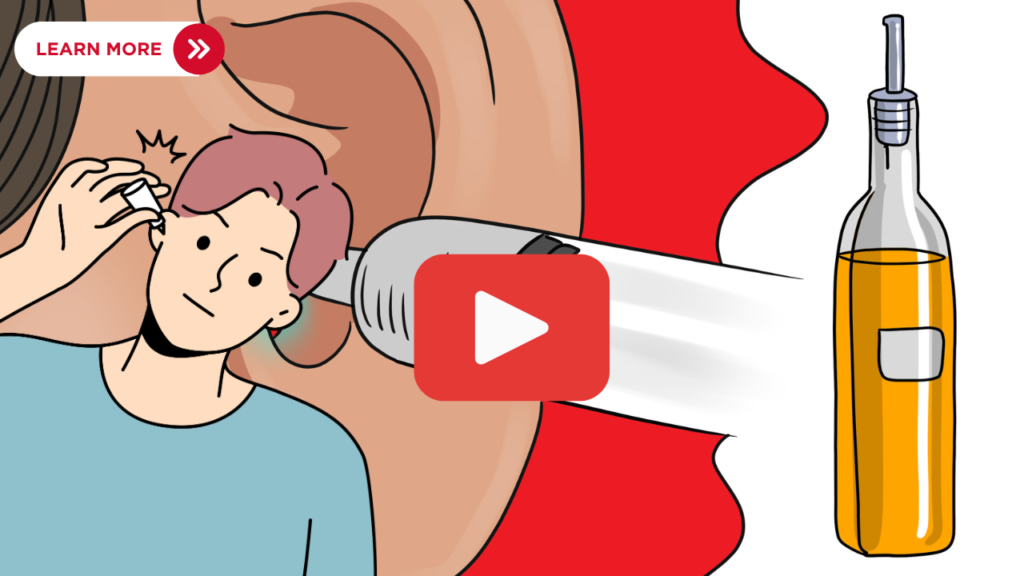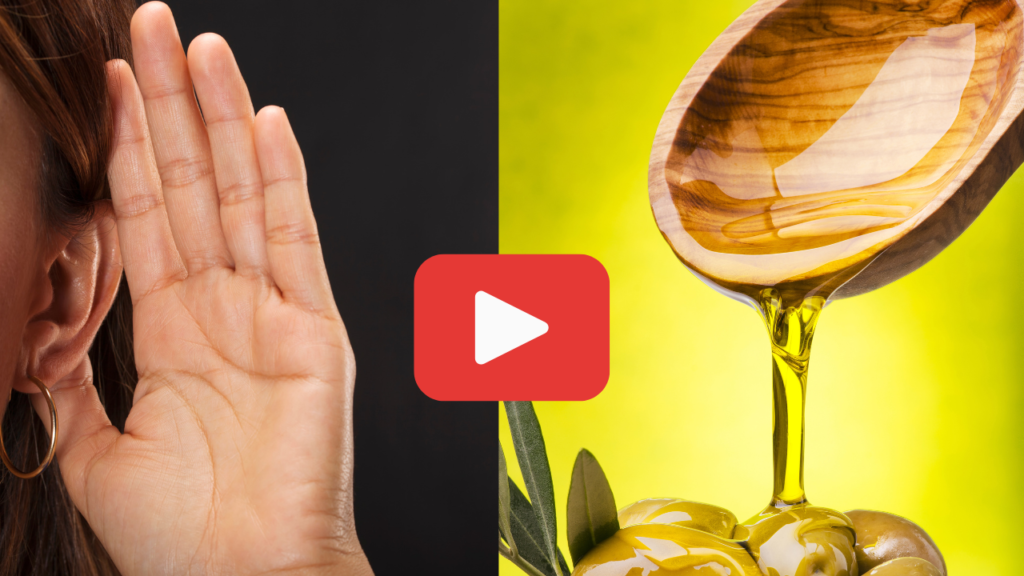
Tinnitus, a condition characterized by a constant ringing, buzzing, or hissing in the ears, can be a frustrating and, at times, debilitating experience for those who suffer from it. While there is currently no known cure for idiopathic tinnitus, numerous natural remedies have been explored to help alleviate this relentless symptom. From herbal supplements to relaxation techniques, these alternative treatments often aim to manage the distress caused by tinnitus and improve overall well-being.
Table of Contents
Natural Tinnitus Cure?
Understanding the root cause of tinnitus is essential in determining which remedies may be effective in providing relief. As scientific research evolves, various natural treatment options have been investigated, and while some may show promise, the results are often subjective and require further studies to confirm their efficacy. In addition to exploring potential treatments, it is essential for patients to consider preventive measures and lifestyle changes that can minimize the impact of tinnitus on their daily lives.
Natural Tinnitus Cure Key Takeaways
- Tinnitus is a challenging condition with no known cure, but alternative treatments may provide relief for some individuals.
- Investigating the cause of tinnitus and exploring natural treatments can be helpful for managing symptoms.
- Considering preventive measures and adopting lifestyle changes may minimize tinnitus’s impact on daily life.
Understanding Tinnitus
Tinnitus is a condition that affects millions of people worldwide. It is characterized by a constant or intermittent ringing, buzzing, or hissing sound in the ears, which can vary in intensity and pitch. Although tinnitus is often perceived as a symptom rather than a disease, it can significantly impact a person’s quality of life. In this section, we will explore the causes and effects of tinnitus to better understand this complex condition.
Causes of Tinnitus
There are numerous factors that can contribute to the development of tinnitus. Some of the most common causes include:
- Hearing loss: Age-related hearing loss or noise-induced hearing loss can lead to tinnitus. When you lose hearing, your brain undergoes changes in the way it processes sounds (source).
- Earwax buildup: Excessive earwax can result in tinnitus. If left untreated, this can cause ear infection and subsequent ringing in the ears.
- Medications: Certain medications, such as high doses of aspirin or specific antibiotics, can cause tinnitus as a side effect (source).
- Medical conditions: Tinnitus can be a symptom of disorders like Meniere’s disease, temporomandibular joint (TMJ) problems, or head and neck injuries.
Effects of Tinnitus
The impact of tinnitus on an individual’s life can vary widely, depending on the severity and duration of the symptoms. Common effects include:
- Sleep disruption: The constant or intermittent noise in the ears can make it difficult for people with tinnitus to fall asleep and stay asleep.
- Concentration difficulties: Due to the distracting nature of the noises, individuals may find it challenging to focus on tasks and maintain productivity.
- Emotional distress: Persistent tinnitus can lead to frustration, anxiety, and even depression, as the symptoms may seem overwhelming and unsolvable.
- Hearing difficulties: In some cases, tinnitus can interfere with a person’s ability to perceive external sounds, making it difficult to communicate effectively.
By understanding the causes and effects of tinnitus, it becomes easier to explore potential Natural Tinnitus Cure treatment options and find relief for those affected by this condition.
Tinnitus Cure – Natural Tinnitus Treatment
Lifestyle Changes
One of the potential ways to manage tinnitus is through adopting certain lifestyle changes. Practicing relaxation techniques like meditation and yoga can help alleviate some tinnitus symptoms by reducing stress and promoting better overall well-being 1. Additionally, getting a good night’s sleep can contribute to natural tinnitus relief 2. Staying away from loud noises and using noise-cancelling headphones can also help to minimize irritants that might worsen tinnitus symptoms.
Dietary Approaches
A healthy diet may play a role in reducing tinnitus symptoms. Limiting the intake of salt and stimulants such as caffeine and nicotine can improve blood flow to the sensitive nerve cells controlling hearing 3. Additionally, staying hydrated and eating a balanced diet with ample vitamins, minerals, and antioxidants can promote general health and well-being, which may prove beneficial for tinnitus management.
Natural Tinnitus Cure -Herbal Remedies
Some individuals with tinnitus have found relief through herbal supplements and natural treatments. For instance, the use of Gingko biloba has been explored for its potential to improve blood flow to the inner ear 1. However, evidence for its effectiveness remains weak and mixed. Another option is the use of zinc supplements to manage tinnitus, but research has not consistently shown conclusive benefits 1. It’s important to keep in mind that the success of herbal remedies varies greatly and should be discussed with a medical professional before considering any supplementation for tinnitus.
Footnotes
Scientific Studies
Clinical Trials
A recent breakthrough in the search for a tinnitus cure has generated excitement in the scientific community. Researchers have conducted a trial of a new treatment for tinnitus, showing promising results. The treatment involves a noninvasive device that applies a technique called bimodal neuromodulation, which combines sounds with zaps to the nervous system. This approach has been found to alleviate the annoying ringing in the ears experienced by tinnitus sufferers.
In addition to device-based treatments, some studies have explored natural remedies for tinnitus, including herbal supplements, yoga, acupuncture, and meditation. Although these alternative treatments may offer relief for some individuals, it is important to note that more research is necessary to determine their efficacy.
Research Findings
One groundbreaking study conducted by the National Institutes of Health (NIH) discovered that tinnitus could be eliminated in rats by stimulating a nerve in the neck while playing a variety of sound tones over an extended period of time. This finding offers hope for a future tinnitus cure in humans, suggesting that the key to treating this condition may lie within the brain itself.
Other research has focused on new tinnitus therapy aimed at quieting the torturous ringing in the ears. This therapy involves using specific sound frequencies to lessen the severity of tinnitus symptoms. While this approach has shown some success, it is crucial for further studies to be conducted in order to determine the best course of treatment for individual sufferers.
In conclusion, scientific studies on tinnitus cures are ongoing, with researchers exploring various approaches, including noninvasive devices, natural remedies, and targeted therapies. The results of these studies provide valuable insights and potential treatment options for those suffering from this debilitating condition.
Preventive Measures
Sound Therapy
One effective approach to manage tinnitus is through sound therapy. By using external noises, such as low-level background music or white noise, people can mask or minimize the ringing sensation in their ears. Using a sound machine or a fan can also be helpful in creating soothing background noise. Experimenting with different types and levels of sounds can aid in discovering the most suitable sound therapy for each individual.
Stress Management
Tinnitus can sometimes be exacerbated by stress, so stress management techniques can play a significant role in reducing the intensity of the ringing sensation. Incorporating activities such as meditation, yoga, or deep breathing exercises can help manage stress levels and consequently alleviate tinnitus symptoms. Additionally, leading a balanced lifestyle with regular exercise, a proper diet, and adequate sleep is essential for overall well-being and may contribute to minimizing tinnitus symptoms.
Conclusion
In the search for natural remedies for tinnitus, numerous methods have been explored, ranging from herbal supplements to lifestyle changes. Some of these alternatives include Gingko biloba, acupuncture, and zinc supplements. However, it is important to note that the effectiveness of these remedies is still under question. The available evidence is weak and mixed, with benefits largely subjective.
Another promising avenue for potential relief is relaxation techniques, such as yoga, meditation, and biofeedback. These approaches may help individuals reduce tinnitus-related distress and better cope with the symptom. Additionally, people suffering from tinnitus might consider changes in their daily lifestyle, such as managing stress, getting sufficient sleep, and exercising regularly.
While these natural remedies might provide some relief for tinnitus sufferers, it is essential to consult with a healthcare professional to obtain an accurate diagnosis and explore potential underlying causes. Some cases may be related to medical conditions or require more specific treatments. It is crucial to maintain a dialogue with a medical expert to ensure the chosen solution is both safe and effective.
Ultimately, the quest for a natural tinnitus cure continues. While several options are currently available, their effectiveness and safety must always be taken into consideration. By staying informed and open to discussing potential remedies with healthcare professionals, those experiencing tinnitus can pursue suitable, naturally-rooted solutions to manage their symptoms.
Frequently Asked Questions
What are effective home remedies for tinnitus?
There are several home remedies that can potentially alleviate tinnitus symptoms. Practicing mindfulness meditation and yoga may help reduce stress and promote relaxation, which can improve tinnitus symptoms. Additionally, avoiding excessive consumption of alcohol, salt, and aspirin might help manage tinnitus as they can affect blood flow and nerve cells related to hearing ^.
Which herbs provide relief for tinnitus?
Some herbs that have been suggested as possible remedies for tinnitus include Ginkgo biloba, which is thought to improve blood circulation and may help with tinnitus symptoms ^. Red Asian ginseng and Acai are also believed to provide relief for some people suffering from tinnitus ^.
Is there a Natural Tinnitus Cure method to stop tinnitus quickly?
While there is no definitive natural method to completely stop tinnitus quickly, practicing relaxation techniques such as deep breathing exercises, mindfulness meditation, and yoga can help reduce the perception of tinnitus symptoms and provide temporary relief ^.
What are recent advancements in Natural Tinnitus Cure treatments?
Recent advancements in tinnitus treatments focus on various approaches, such as neuromodulation techniques to alter nerve activities, sound therapies to desensitize sufferers to tinnitus sounds, and cognitive behavioral therapy (CBT) to help patients manage the psychological impact of tinnitus. However, further research is needed to establish the efficacy of these advancements ^.
Which vitamins can help alleviate ringing in the ears?
Zinc supplements have been suggested as a possible remedy for tinnitus, as a deficiency in zinc may contribute to tinnitus symptoms ^. However, there is no substantial scientific evidence to confirm the effectiveness of zinc or other vitamins in alleviating tinnitus, so it’s essential to consult with a healthcare professional before starting any supplement regimen.
Are there any successful Chinese herbal remedies for tinnitus?
Acupuncture, a traditional Chinese medicine technique, has been reported to provide relief for some individuals with tinnitus ^. While there are anecdotal reports of some Chinese herbal remedies being helpful for tinnitus, more research is needed to establish their efficacy. It is important to consult with a healthcare professional before trying any alternative treatments to ensure safety and effectiveness.






